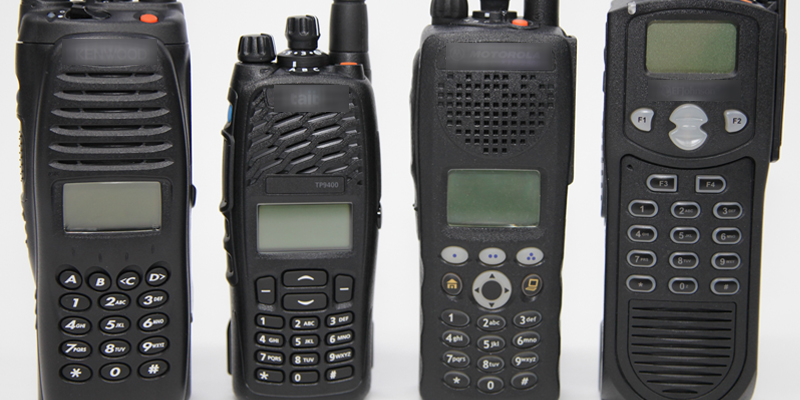Introduce:
The electronic industry encompasses a broad range of activities related to the development, manufacturing, and maintenance of electronic devices and systems. It's a dynamic and ever-evolving field that plays a crucial role in various aspects of modern life.

Components of the electronic industry:
Semiconductor Manufacturing:
Involves the production of semiconductors, which are the building blocks of electronic devices. This includes the fabrication of integrated circuits (ICs) and other semiconductor components.
Consumer Electronics:
This sector includes the manufacturing of electronic devices for personal use, such as smartphones, tablets, laptops, televisions, audio equipment, and other gadgets.

Communication Equipment:
Involves the production of devices and infrastructure for communication purposes, including mobile phones, networking equipment, satellite communication systems, and more.

Computer Hardware:
Encompasses the design and manufacturing of computer components such as central processing units (CPUs), graphics processing units (GPUs), motherboards, and storage devices.
Electronic Components:
This includes the production of individual electronic components like resistors, capacitors, transistors, and connectors that are used in various electronic systems.
Industrial Electronics:
Involves the application of electronic technologies in industrial processes and automation, including control systems, robotics, and instrumentation.
Medical Electronics:
Focuses on electronic devices used in healthcare, ranging from diagnostic equipment to medical imaging devices and wearable health monitors.
Automotive Electronics:
Involves the integration of electronic systems into vehicles, including engine control units, entertainment systems, navigation systems, and safety features.
Aerospace and Defense Electronics:
Encompasses the development of electronic systems used in aviation, space exploration, and defense applications, including radar systems, avionics, and communication systems.
Renewable Energy Electronics:
Involves electronic components and systems used in renewable energy technologies such as solar panels, wind turbines, and energy storage systems.
The importance of precision manufacturing in Electronic Industry:
Miniaturization:
Electronic devices are becoming smaller and more compact, and precision manufacturing allows for the production of tiny components with high accuracy. This is essential for devices like smartphones, wearables, and medical implants.
Performance Optimization:
Precision manufacturing ensures that electronic components meet strict specifications, leading to better overall performance of electronic devices. This is particularly important in industries like aerospace, defense, and medical electronics where reliability and precision are critical.
Quality Control:
Precision manufacturing processes enable rigorous quality control measures. Consistency and precision in production are vital to identify and rectify defects early in the manufacturing process, reducing the likelihood of faulty components reaching the market.
Energy Efficiency:
Precision manufacturing contributes to the development of energy-efficient electronic components. By minimizing waste and optimizing the design and manufacturing processes, energy consumption can be reduced, aligning with the increasing focus on sustainability.
High-Speed Computing:
In the computer hardware and semiconductor industry, precision manufacturing is essential for producing components that can operate at high speeds and handle complex computations. This is crucial for advancements in areas like artificial intelligence and data processing.
Reliability and Durability:
Precision manufacturing ensures the reliability and durability of electronic components. This is particularly important in industries such as automotive and aerospace where components must withstand harsh environmental conditions and operate flawlessly for extended periods.
Cost Efficiency:
While precision manufacturing may involve higher upfront costs, it often leads to cost savings in the long run. The reduction in defects, improved efficiency, and longer lifespan of precision-manufactured components contribute to overall cost-effectiveness.
Innovation:
Precision manufacturing enables the production of cutting-edge technologies and encourages innovation in electronic devices. This is seen in advancements like flexible electronics, nanotechnology, and other emerging fields that rely on precision in manufacturing processes.
How precision manufacturing is applied in various sectors within the electronic industry:
Consumer Electronics:
Smartphones: Precision manufacturing is crucial for producing compact and high-performance components such as processors, memory chips, and cameras. The assembly of these components into slim and sleek devices requires precision in design and manufacturing.
Wearable Devices: Devices like smartwatches and fitness trackers rely on precision engineering for miniaturization, ensuring that sensors, batteries, and displays are seamlessly integrated into small and lightweight form factors.
Communication Equipment:
Mobile Base Stations: Precision manufacturing is vital for the production of components in communication infrastructure, such as antennas and transceivers. These components must be precisely calibrated and aligned to ensure efficient signal transmission and reception.
Networking Equipment: Precision engineering is applied in the production of routers, switches, and other networking devices to optimize data transfer rates, reduce signal interference, and enhance overall network performance.
Computer Hardware:
Central Processing Units (CPUs): Precision manufacturing is critical for fabricating the intricate circuits of CPUs. This includes photolithography processes to create tiny transistors, ensuring that the CPU can handle complex computations with speed and accuracy.
Graphics Processing Units (GPUs): Precision engineering is applied in the manufacturing of GPUs, which require intricate designs and precise assembly for rendering graphics and performing parallel processing tasks efficiently.
Electronic Components:
Resistors and Capacitors: Precision manufacturing ensures the accuracy of resistance and capacitance values in these basic electronic components, which are essential building blocks in various circuits.
Integrated Circuits (ICs): Precision is paramount in the fabrication of ICs, where millions or billions of transistors are integrated onto a single chip. This requires advanced photolithography and etching processes.
Industrial Electronics:
Control Systems: Precision manufacturing is crucial for the production of control systems used in industrial automation. This includes the fabrication of sensors, actuators, and controllers with high accuracy to ensure precise control of manufacturing processes.
Robotics: Precision engineering is applied in the manufacturing of robotic components, such as motors, gears, and sensors, to achieve accurate and repeatable robotic movements in industrial settings.
Medical Electronics:
Diagnostic Equipment: Precision manufacturing is essential for medical diagnostic devices, including imaging equipment and analytical instruments. High-precision components contribute to the accuracy of medical diagnostics.
Implantable Devices: Devices like pacemakers and implantable sensors require precision engineering to ensure that they are compact, reliable, and capable of functioning within the human body without adverse effects.
Automotive Electronics:
Engine Control Units (ECUs): Precision manufacturing is crucial for ECUs, which regulate engine performance. High-precision components ensure accurate monitoring and control of various parameters such as fuel injection, ignition timing, and emissions.
Advanced Driver Assistance Systems (ADAS): Precision engineering is applied in the production of sensors and cameras for ADAS, enabling features like lane departure warning, adaptive cruise control, and collision avoidance systems.
Infotainment Systems: The production of in-car entertainment and navigation systems involves precision manufacturing to integrate components seamlessly and ensure reliable performance.
Aerospace and Defense Electronics:
Avionics: Precision engineering is critical for avionic systems, including navigation instruments, communication systems, and radar. Components must meet stringent standards for accuracy, reliability, and durability in the demanding aerospace environment.
Military Communication Systems: Precision manufacturing is applied in the production of electronic components for military communication, encryption, and surveillance systems. These components must meet strict specifications for security and performance.
Guidance and Control Systems: Aerospace and defense applications often require precision-engineered components for guidance and control systems in missiles, unmanned aerial vehicles (UAVs), and spacecraft.
Renewable Energy Electronics:
Solar Inverters: Precision engineering is essential in the production of solar inverters, which convert DC power from solar panels to AC power for use in electrical grids. High precision ensures efficiency and reliability in energy conversion.
Wind Turbine Controls: Precision manufacturing is applied in the electronic controls of wind turbines, regulating the pitch of blades and optimizing power output. Accurate sensors and control systems are essential for efficient energy generation.
Energy Storage Systems: Precision engineering is crucial in the manufacturing of electronic components for energy storage systems, including batteries and capacitors. These components require precise design and manufacturing to ensure safety and performance.
GD-HUB offers a full range of quality precision machining services and methods to meet the many challenges and extremely tight tolerances of the electronics industry. We offer machining capabilities in a wide range of materials, from metals to plastics, to ensure the delivery of superior quality components:
CNC Machining In Electronic Industry:
Application in Electronic Industry: CNC machining is often used for producing precision metal and plastic parts in the electronic industry. It is suitable for creating complex and intricate components such as housings, heatsinks, and connectors with high precision.
Advantages: CNC machining allows for tight tolerances and the production of prototypes or low-volume batches efficiently. It's versatile and applicable to a wide range of materials.
3D Printing In Electronic Industry:
Application in Electronic Industry: 3D printing is used for rapid prototyping, producing customized components, and creating complex geometric shapes in the electronic industry. It's employed in making prototypes of casings, brackets, and other components.
Advantages: 3D printing allows for rapid iteration in design, reduced material waste, and the creation of intricate structures that might be challenging with traditional manufacturing methods.
Vacuum Casting In Electronic Industry:
Application in Electronic Industry: Vacuum casting is often used for producing small batches of high-quality plastic parts. In the electronic industry, it may be employed for creating prototypes of casings and enclosures.
Advantages: Vacuum casting can replicate fine details and surface finishes, making it suitable for producing visually appealing prototypes or low-volume production runs.
Injection Molding In Electronic Industry:
Application in Electronic Industry: Injection molding is widely used in the electronic industry for mass production of plastic components such as housings, connectors, and covers. It's a cost-effective method for large-scale manufacturing.
Advantages: Injection molding is efficient for producing high volumes of identical parts with tight tolerances. It is suitable for various materials and offers a high degree of repeatability.
Extrusion In Electronic Industry:
Application in Electronic Industry: Extrusion is commonly used for creating continuous lengths of materials with a consistent cross-section. In the electronic industry, extrusion may be employed for producing components like plastic tubing, channels, or profiles.
Advantages: Extrusion is a continuous process, making it efficient for creating long lengths of uniform shapes. It's cost-effective for certain applications with consistent cross-sectional requirements.
Want To Minimizing Risk?
To stay ahead of your competitors and meet market demands, you need a partner who can help you compress the time from idea to market with minimal risk.
Trust GD-HUB to bring you the most satisfying results. Collaboration starts now→